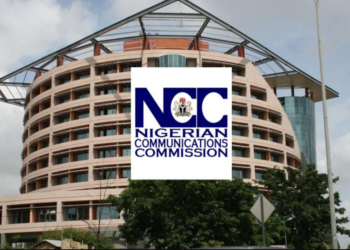The Presidency has defended the 50% hike in tariff approval granted to telecommunications operators by the Nigerian Communications Commission (NCC), saying it was necessary to keep the telecom industry viable.
It, however, noted that the approval does not mean that the telecom operators must immediately increase their tariffs by 50%.
“It is important to highlight that this approval does not mean automatic increases in tariffs. Operators are free to maintain their current rates if they find them sustainable,” the President Bola Ahmed Tinubu Media Centre, stated in a statement released on Monday.
Why the increment was approved
While describing the approval as an important step aimed at addressing critical challenges in the telecommunications sector, the Centre noted that the telecom industry in Nigeria had operated under static price mechanisms for over a decade as prices have remained unchanged since 2013, despite significant increases in the cost of operations.
“This has placed immense strain on service providers, who are tasked with maintaining infrastructure and ensuring quality service delivery.
“The NCC’s decision to allow a tariff adjustment of up to 50% within existing tariff bands was therefore necessary, though it is noteworthy that this adjustment remains significantly lower than the over 100% increase requested by the operators.
“This deliberate move strikes a balance between safeguarding the interests of service providers and protecting the economic well-being of Nigerian households and businesses,” the Centre stated.
Telecom as a critical pillar of economy
The Centre noted that while many Nigerians may view tariff adjustments with apprehension, they need to understand the critical role of the telecom sector in the economy.
- It added that the telecom industry currently supports millions of individuals and businesses that rely on uninterrupted connectivity for daily activities, hence, it must be sustained.
- According to the Centre, without a sustainable pricing model, the sector risks stagnation, as operators would not be able to maintain or upgrade infrastructure to meet increasing demands.
It added that by approving this ‘moderate’ adjustment, the NCC has ensured that operators can remain viable while creating room for innovation a improved service delivery.
Strict regulatory measures
Beyond the tariff hike approval, the Centre noted that the NCC has also introduced strict regulatory measures to simplify tariff structures and eliminate exploitative billing practices that have plagued the industry in the past.
“For instance, operators who fail to meet their service obligations will now face stricter sanctions under updated Quality of Service regulations.
“This commitment to accountability ensures that customers receive value for their money while setting a new standard for transparency and fairness in the industry.
“The NCC’s proactive approach to regulating the adjustment ensures that it is implemented in a way that benefits everyone-operators and consumers alike,” it added.
Backstory
The NCC had on January 20 announced that it had approved a 50% tariff adjustment for telecom operators, citing rising operational costs and the need to sustain the industry.
- The Commission in a statement signed by the Director of Public Affairs, Reuben Muoka, said the decision underlines the Commission’s regulatory role under Section 108 of the Nigerian Communications Act, 2003.
- However, the National Association of Telecommunications Subscribers (NATCOMS) has threatened to challenge the approved tariff hike in court.
- This decision, according to NATCOMS, was made without adequate consultation with key stakeholders, including subscribers.
























